Welcome to EcoSense Lab
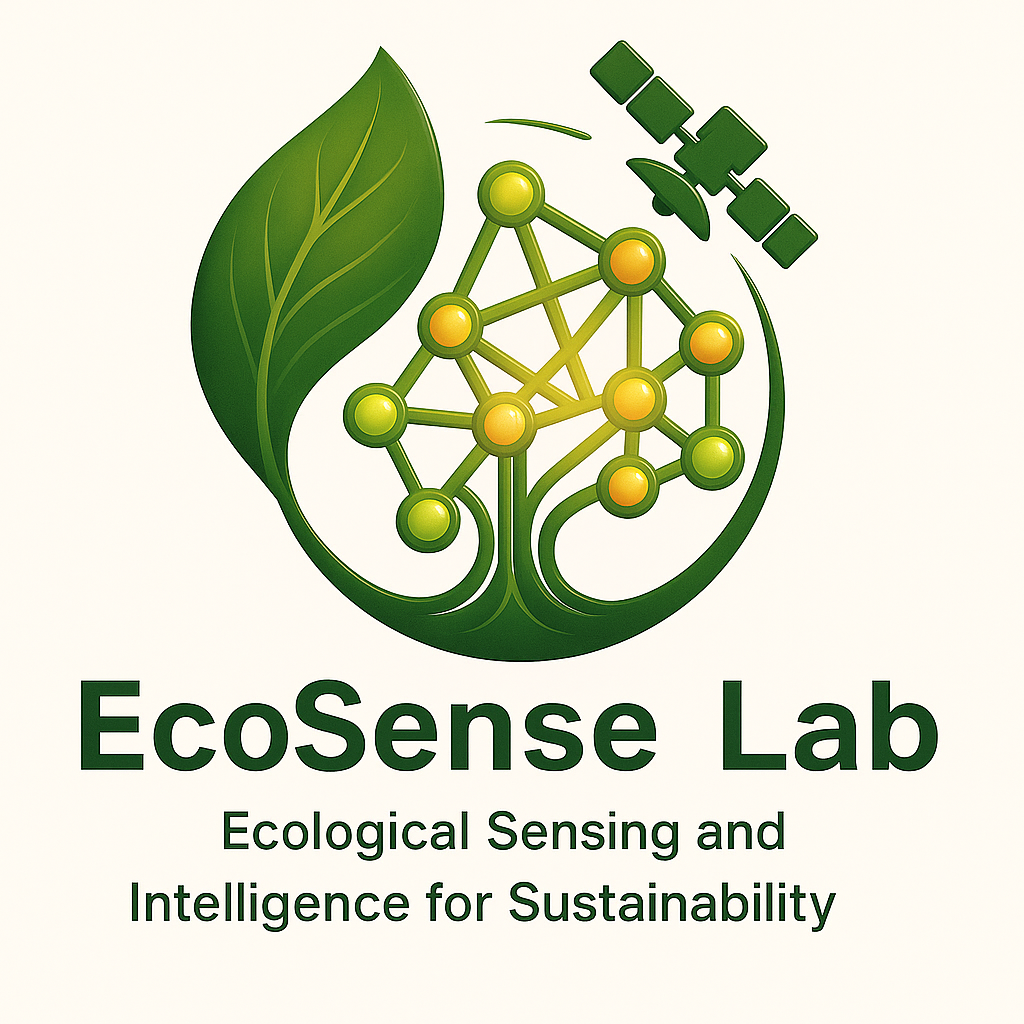
Eco — Ecology / Ecosystems
Sense — Sensing (remote sensing, monitoring)
+ Intelligent understanding
We are ecologists at Duke University’s Nicholas School of the Environment, dedicated to understand terrestrial ecosystem processes using a variety of tools:
- Satellite remote sensing (Solar-induced chlorophyll fluorescence, Optical remote sensing, Thermal remote sensing)
- Artificial intelligence (interpretable AI, Process-informed machine learning)
- Land surface modeling to better represent carbon and water fluxes
Our research aims to bridge fundamental ecological science with real-world applications that deliver socioeconomic benefits, including but not limited to:
- Enhancing forest management to increase carbon sequestration
- Improving crop yields and water use efficiecny to support food and water security
- Mitigating urban heat to protect public health
Research Highlights
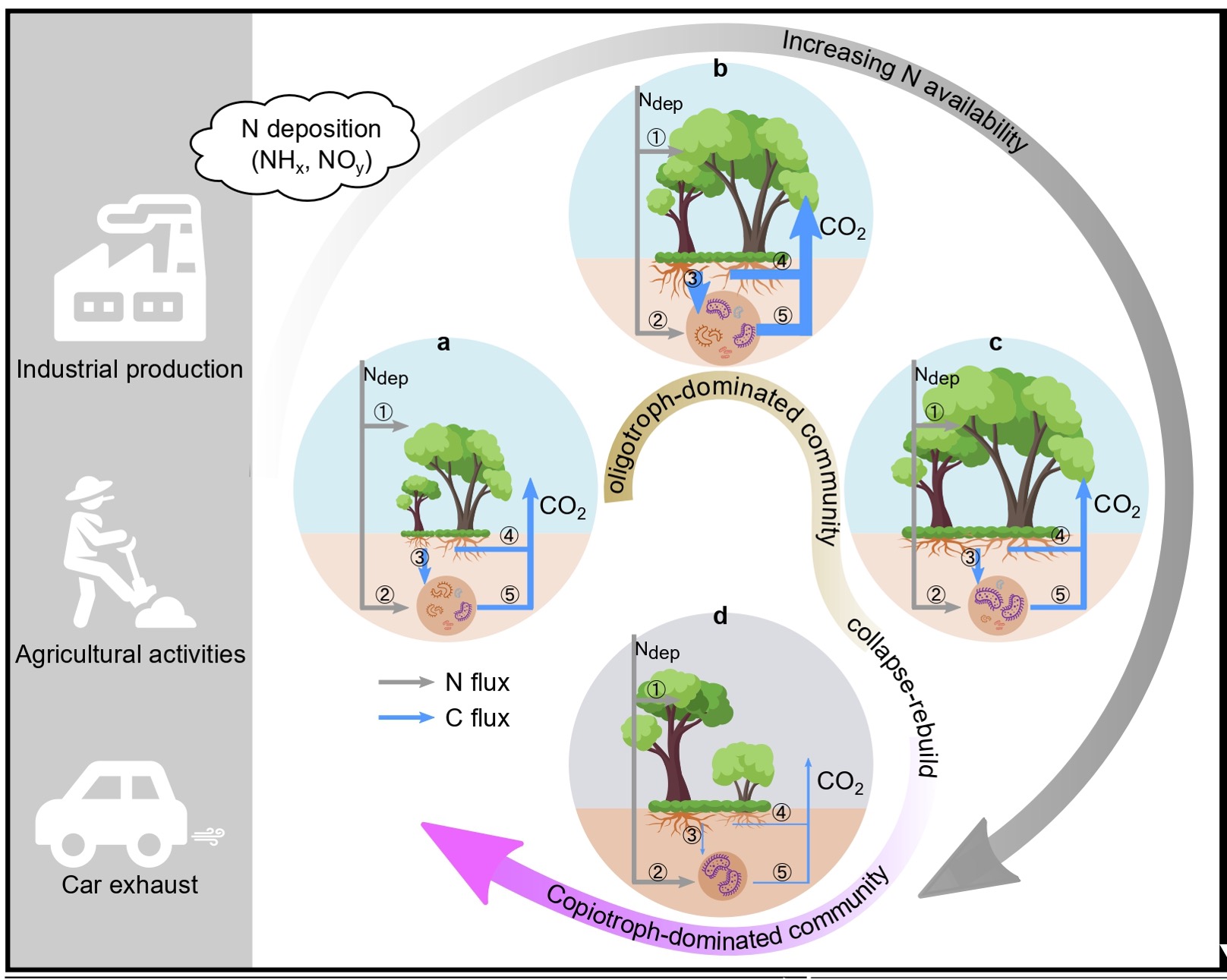
Nitrogen deposition effects on soil respiration
This study developed a general framework for nitrogen deposition effects on soil respiration in global forests, published in Nature Communications.
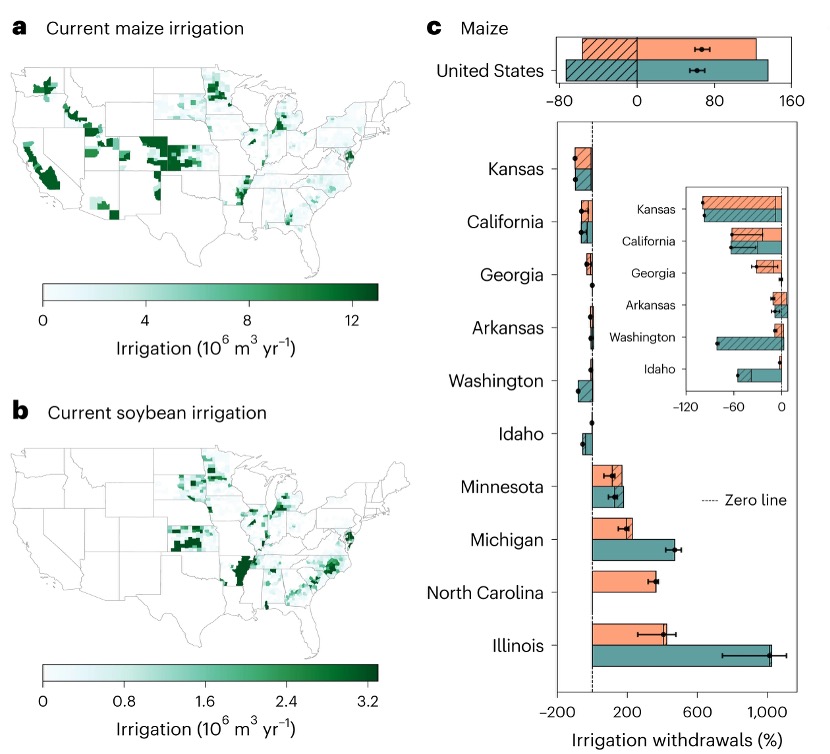
Irrigation and nitrogen optimization for US crops
This study highlights the importance of integrated irrigation and nitrogen management in promoting sustainable resource use while maintaining crop yields under warming, published in Nature Food.
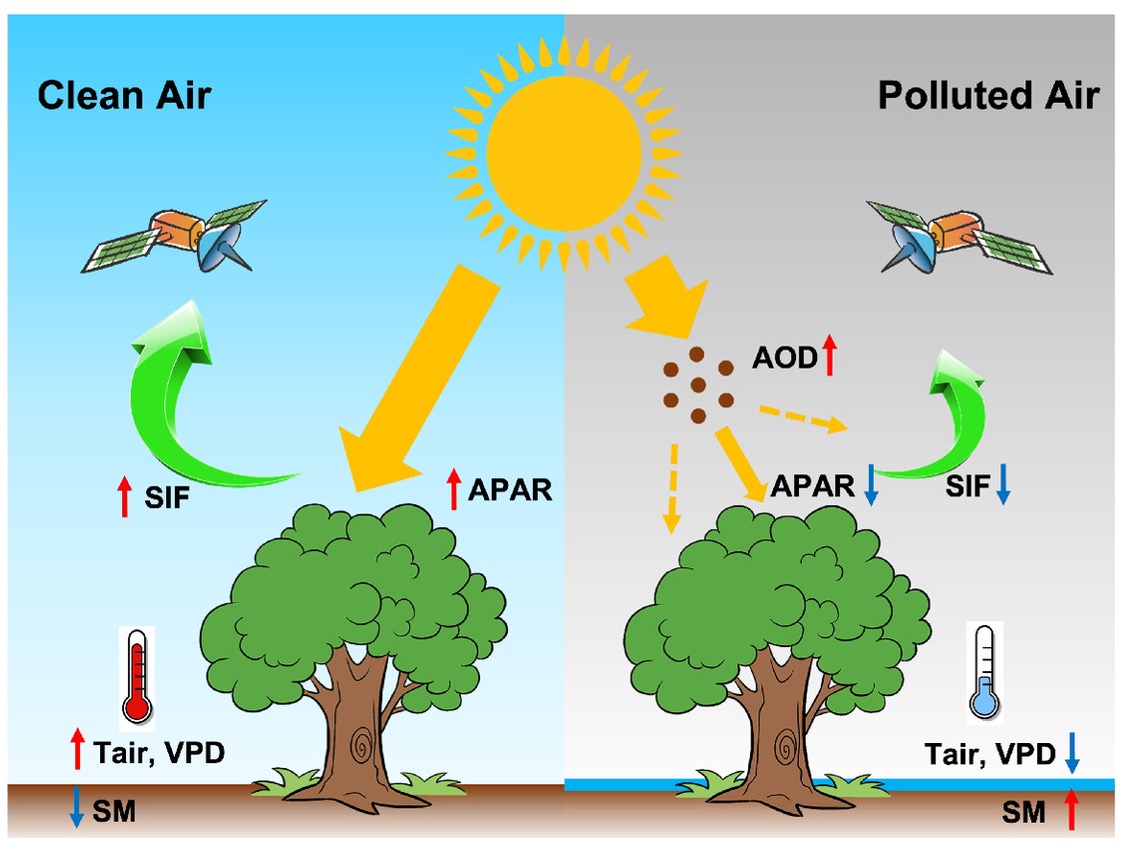
Impacts of air quality on photosynthesis
Using satellite observations, we reveal that reducing particulate pollution has the potential to enhance ecosystem productivity by increasing carbon uptake from the atmosphere, published in PNAS.
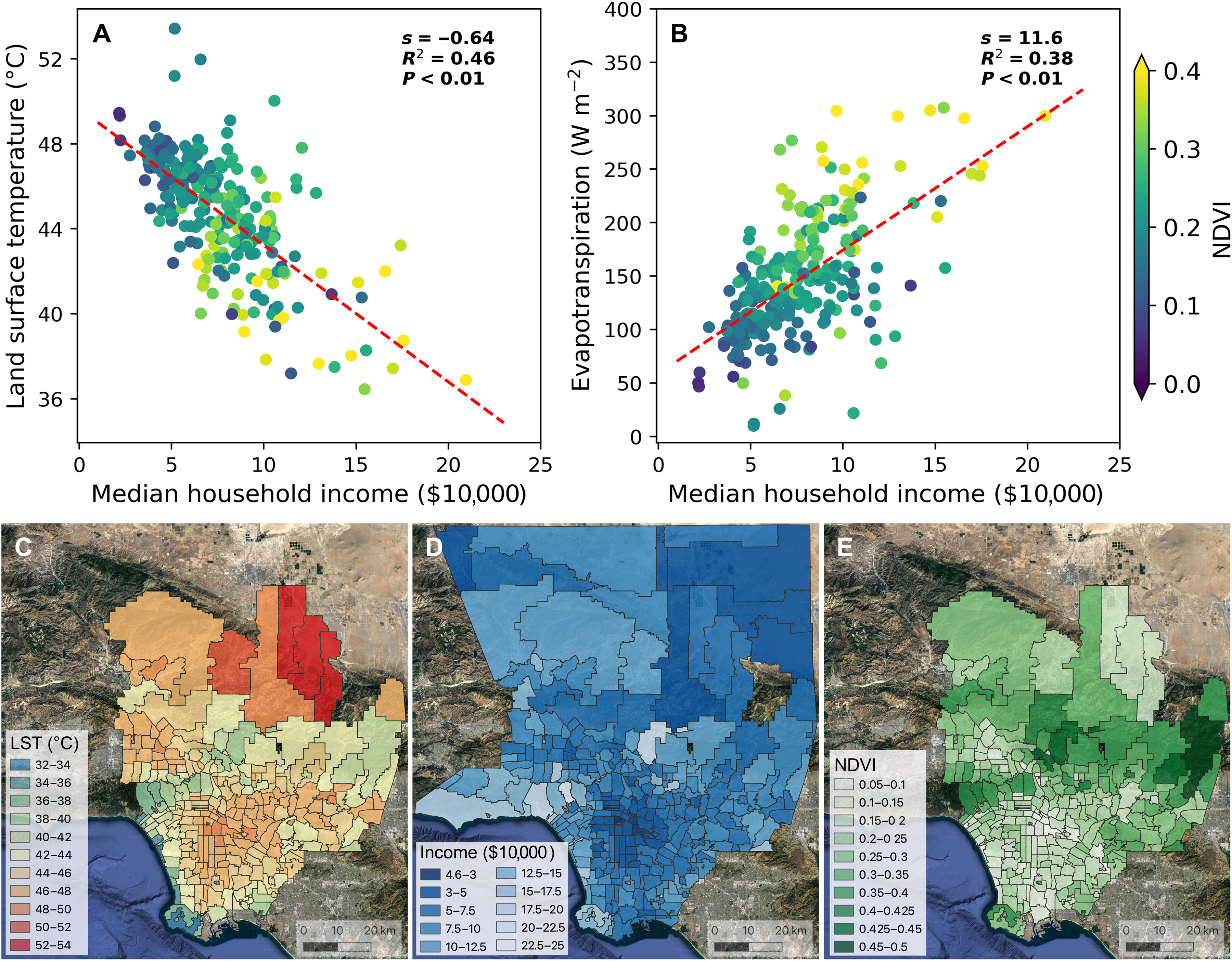
Unequal exposure to heatwaves in Los Angeles
Using NASA ECOSTRESS data, we find that low-income neighborhoods in Los Angeles experience higher land surface temperature during heatwaves, published in Science Advances.
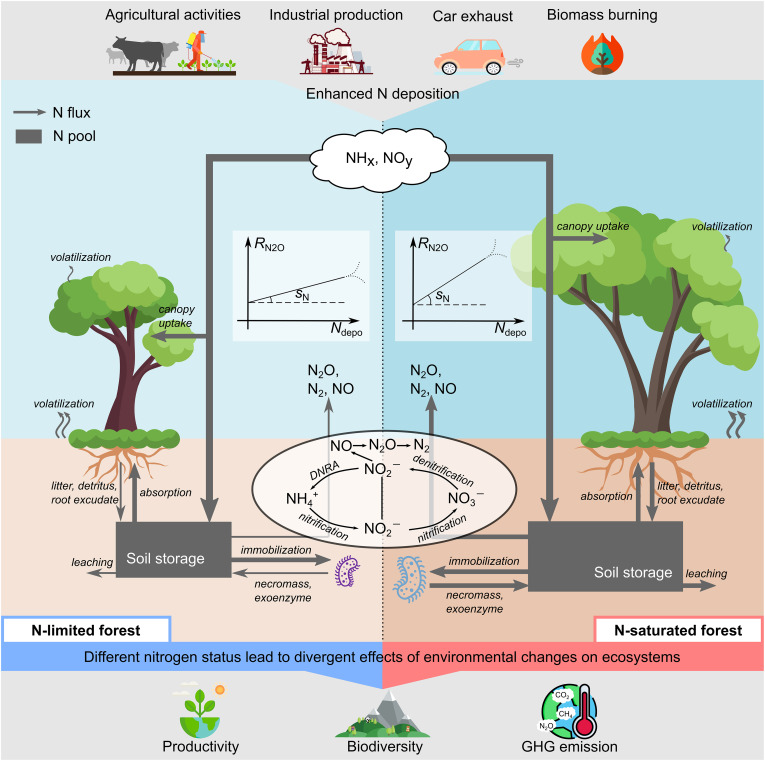
Global patterns of nitrogen saturation in forests
The map of forest nitrogen status is developed to support the implementation of region-specific environmental management practices, published in One Earth.
Principal Investigator
Dr. Liyin He
Assistant Professor of Terrestrial Ecology
A207 Levine Science Research Center
Nicholas School of the Environment
Duke University
Durham, NC 27708